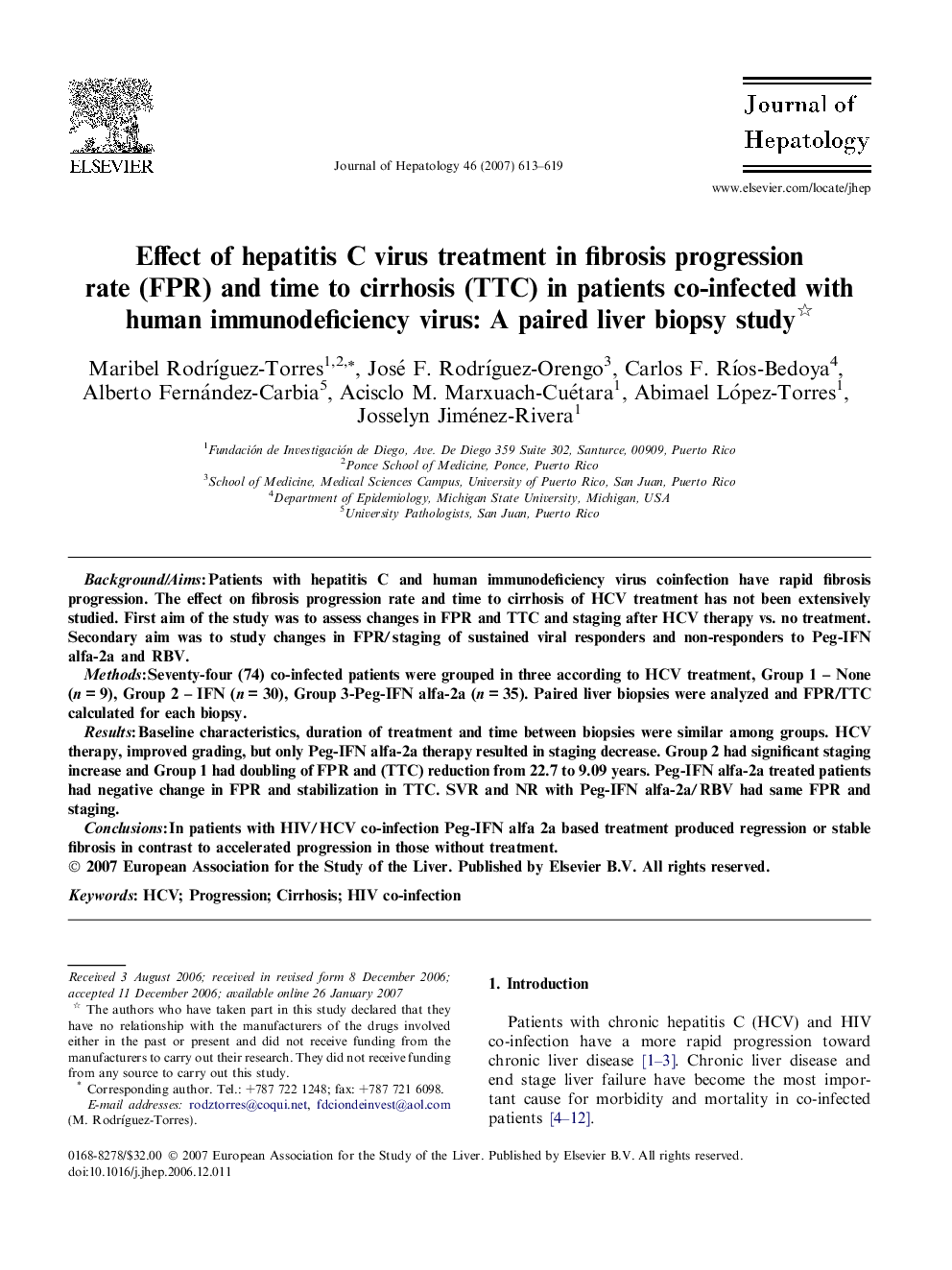| Article ID | Journal | Published Year | Pages | File Type |
|---|---|---|---|---|
| 3314691 | Journal of Hepatology | 2007 | 7 Pages |
Background/AimsPatients with hepatitis C and human immunodeficiency virus coinfection have rapid fibrosis progression. The effect on fibrosis progression rate and time to cirrhosis of HCV treatment has not been extensively studied. First aim of the study was to assess changes in FPR and TTC and staging after HCV therapy vs. no treatment. Secondary aim was to study changes in FPR/staging of sustained viral responders and non-responders to Peg-IFN alfa-2a and RBV.MethodsSeventy-four (74) co-infected patients were grouped in three according to HCV treatment, Group 1 – None (n = 9), Group 2 – IFN (n = 30), Group 3-Peg-IFN alfa-2a (n = 35). Paired liver biopsies were analyzed and FPR/TTC calculated for each biopsy.ResultsBaseline characteristics, duration of treatment and time between biopsies were similar among groups. HCV therapy, improved grading, but only Peg-IFN alfa-2a therapy resulted in staging decrease. Group 2 had significant staging increase and Group 1 had doubling of FPR and (TTC) reduction from 22.7 to 9.09 years. Peg-IFN alfa-2a treated patients had negative change in FPR and stabilization in TTC. SVR and NR with Peg-IFN alfa-2a/RBV had same FPR and staging.ConclusionsIn patients with HIV/HCV co-infection Peg-IFN alfa 2a based treatment produced regression or stable fibrosis in contrast to accelerated progression in those without treatment.
